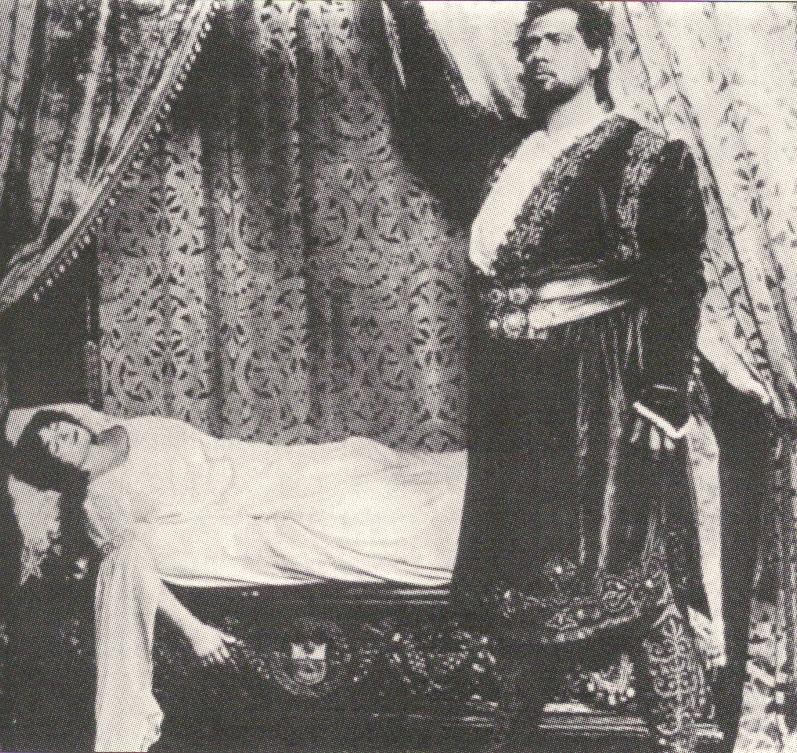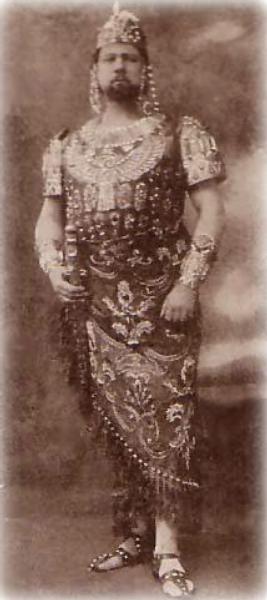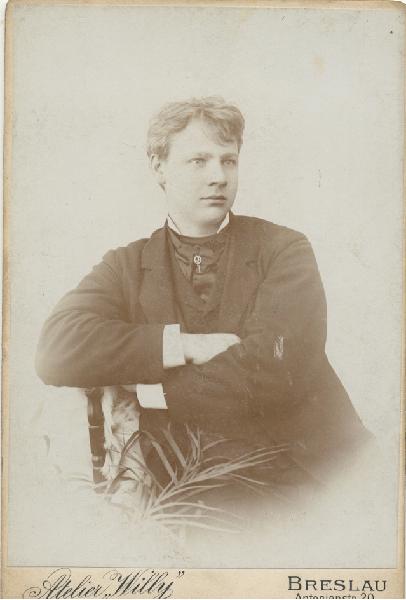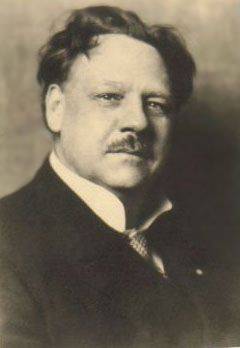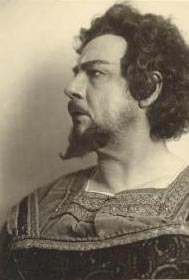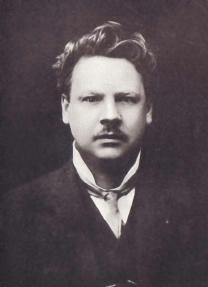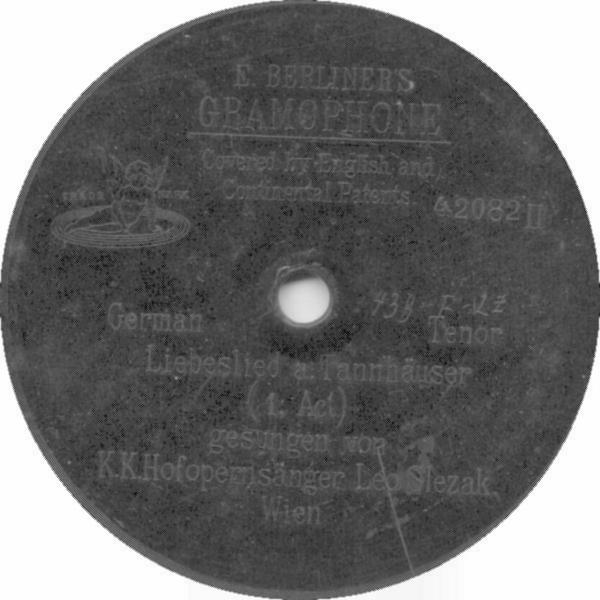Leo Slezak
18 August 1873 Šumperk/Mährisch-Schönberg – 1 June 1946 Rottach-Egern
Otello, Paris Châtelet 1910 with Frances Alda
Leo Slezak sings Tannhäuser: Dir töne Lob (click on label picture above)
In RA format
In RA format
| Leo Slezak sings | Lohengrin: Nun sei bedankt
|
| Not a quarter-tone flat (see below). |
In RA format
A school dropout, Slezak worked as a gardener and an engine fitter before having his voice trained by Adolf
Robinson in Brno/Brünn, where he also made his debut in 1896 as Lohengrin. In 1898, he was hired by the Berlin Hofoper, but
left after one year because he felt underemployed. Via Wrocław/Breslau (with a first trip to Covent Garden in 1900), in
1901 he came to the Vienna Hofoper, where Gustav Mahler was director; Slezak was to stay for the rest of his career, until 1933.
He was the star of the Vienna Hofoper (later Staatsoper), and at the same time had a splendid international career through
guest appearances in Paris (where he sang both at the Opéra and the Théâtre Châtelet, and where he
also restudied with Jean de Reszke in 1907), Munich, Berlin, Frankfurt, Dresden, Zürich, Basel, Copenhagen, Stockholm,
Budapest, Brno, Lviv/Lemberg, Amsterdam, Rotterdam, Boston, at La Scala (1905, Tannhäuser), and particularly at the Met,
where he had huge success in four seasons from 1909 to 1913.
His repertory was varied: Tamino, Belmonte, Rodolfo, even Georges Brown and Ferrando (!), Éléazar, Otello,
Tannhäuser, Stolzing, Alfred (Fledermaus), Radames, Manrico, Gounod's Faust, Jean de Leyde, Arnold, Massenet's des Grieux,
German, Canio, Riccardo...
That the audiences loved him was probably not only because of his singing: he must have been very impressive on stage, an
unusually tall and massive man (his preserved costumes are almost frighteningly large), and above all, he was irresistibly
funny, both on
and off stage, although he didn't sing many comic parts. One of the best-known among the countless Slezak anecdotes has almost
made it to an Austrian proverb: when he farewelled Elsa too long to catch the swan that was to deliver him back to the Holy
Grail, he asked loudly on stage "When is the next swan due?" His heldentenor competitor Erik Schmedes was alarmingly helpless against Slezak's wit and hence his (or its)
permanent victim; one of Schmedes' little daughters once told Slezak "Uncle Leo, you are only a tenor, but my dad is an artist",
and Slezak answered back "If your dad had a high C, he'd rather want to be a tenor, too."
Also apart from his sense of humor, he was quite a character. Helge Rosvaenge reported that in his late Staatsoper years, Slezak (who lived across the
street from the Staatsoper) would arrive at the theater two minutes before his Bohème performance (yes, he still sang
Rodolfo until 1931!), step on stage in his private street clothes, sit down in an armchair and sing his part. And Slezak himself
told the story that when young, he auditioned with Cosima Wagner in Bayreuth – and when she asked what he would sing, he
proposed "the aria from Pagliacci", which was of course met with glacial disapproval, and Slezak was never engaged to Bayreuth.
Slezak wrote a couple of books (in German), all supremely funny, and in my
humble opinion, his importance as an ingenious jester outdoes his importance as a singer. (Admittedly, I'm not crazy about
Slezak the singer. Of course some of his many recordings are very good, but all in all, his tone is too often narrow, unfree or
outright forced, and his really incredible Czech accent when singing German – an accent so heavy that it seems to be
right from a stand-up comedy skit – doesn't help either to take him
seriously in serious repertory.) Unforgettable, for instance, the arguments of a few popular operas that he gives in one of his
books, not least because of his masterly German language skills that you would never imagine when hearing his accent; best of
all: Lohengrin ("Lohengrin enters the stage and sings the Swan Song a quarter-tone flat"). Quite appropriately,
Slezak made a second excellent career after retiring as a singer: as a film comedian, and I'm adding a rather elusive
recording from one of his films, where he, to impress a guest sitting in the adjacent room, imitates the radio that they
actually had to bring to the pawn shop... in three languages, or three international radio stations, which all broadcast famous
Leo Slezak. Closing announcement: "Don't forget to water your antennas and to ground your gas taps." That excerpt also contains
what is quite certainly Slezak's sole recording in his native Czech.
| Leo Slezak sings, speaks and squeaks Radio parody |
containing Martha: Mag der Himmel euch vergeben
Andulko, mé dítě (very very popular Czech folk song)
I love you, love you, love you (mock "American" pop song, likely self-composed) |
I wish to thank Daniele Godor for the picture (Otello).
I wish to thank Thomas Silverbörg for the recording (Lohengrin) and
the pictures (Aida, two private)
|
